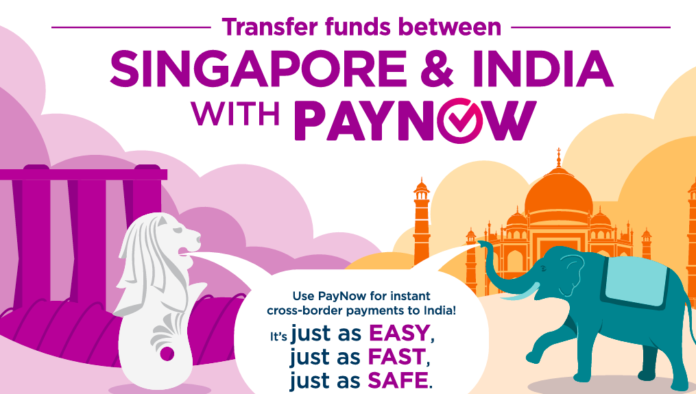The Monetary Authority of Singapore (MAS) and the Reserve Bank of India (RBI) have launched the linkage between Singapore’s PayNow and India’s Unified Payments Interface (UPI).
This which will enable customers of participating financial institutions in both countries to send and receive funds between bank accounts or e-wallets across the two countries in real-time.
According to the MAS, Singapore participants are DBS and Liquid Group while India participants are Axis Bank, DBS India, ICICI Bank, Indian Bank, Indian Overseas Bank and State Bank of India.
Liquid Group is the first non-bank financial institution to participate in Singapore’s cross-border real-time payment system linkage via its LiquidPay e-wallet.
Customers can access the service using just the mobile phone number, UPI identity, or Virtual Payment Address (VPA).
A Singapore PayNow user sending money to India will need to key in the recipient’s registered UPI identity. An India UPI user sending money to Singapore will need to key in the recipient’s registered PayNow mobile number or VPA. UPI identity and VPA are identifiers that are uniquely linked to an individual bank account.
The PayNow-UPI linkage is the world’s first real-time payment systems linkage to use a scalable cloud-based infrastructure which can accommodate future increases in the volume of remittance traffic. It is also the first linkage to feature a non-bank financial institution as a participant.
The service will be made available to Singapore customers of DBS Bank and Liquid Group under a phased approach, where these institutions will progressively increase the number of eligible user groups and transaction limits until March 31, 2023.
Selected DBS customers will be able to transfer funds of up to S$200 per transaction, capped at S$500 per day. By 31 March 2023, this service will be available to all DBS customers, where they may transfer funds of up to S$1,000.
Indian customers of all participating Indian banks will be able to receive funds through the service from the onset. Sending of funds is limited to customers of the four participating Indian banks, with this scope to be gradually expanded.
Participating financial institutions have committed to ensuring that the service is cost-efficient and accessible, including to foreign workers and students residing in Singapore and India, enabling them to make and receive low-cost cross border remittances back to and from their home countries. The linkage also provides for automatic incorporation of capital control rules for enhanced efficiency.
MAS and RBI will review and progressively scale the linkage by increasing the number of participating financial institutions, as well as applicable use cases.
Also, the PayNow-UPI linkage is the result of extensive collaboration between MAS, RBI, both countries’ payment system operators (Banking Computer Services for Singapore, and NPCI International Payments for India), payment scheme owners, and participating banks and non-bank financial institutions. It
This is considered a major milestone in enhancing the infrastructure for cross-border payments and supports India’s G20 Presidency priorities to improve the cost, speed, access and transparency of cross-border payments.
Singapore PM Lee Hsien Loong said cross-border retail payments and remittances between Singapore and India amount to over US$1 billion annually.
“I hope this strong partnership between Singapore and India will continue to spawn innovative technology solutions and create more cross-border opportunities for our digital economies,” said Lee.
















